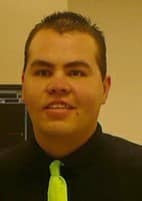Summary
In this webinar Adrian will introduce the important role that passive radiometry and spectroscopy plays in Earth science, planetary science and astronomy investigations at mm-wave and terahertz wavelengths that explore Earth, the solar system, and space. He will then review some of the fundamentals of radiometry including deep stability, Allen variance/time and spectroscopic versus radiometric sensitivity. The webinar will describe several recent results by instruments operating in these wavelength regimes and discuss the important role CMOS system-on-chip (SoC) technology now plays for LO generation, calibration, and signal processing, as well as the fundamental challenges (noise, extreme temperatures, and radiation effects) that CMOS based instruments face in delivering the high level of fidelity required for NASA’s science investigations. Several examples of CMOS SoC-based instruments from NASA programs including 600 GHz spectrometers being developed for investigations of Europa, Titan, Enceladus will be presented as well as a CMOS 180 GHz spectrometer instrument that recently flew aboard the NASA Reck-Tang LimbsoundEr-2 (ReckTangLE-2) mission, which performed H2O soundings of Earth’s atmosphere to diagnose precipitation and climate change effects.
Speakers

Adrian Tang has 17 years of CMOS/SiGe IC chip design experience in both research and commercial wireless environments with projects ranging from the design of commercial Bluetooth and WLAN chipsets to mm-wave and THz spectrometer systems-on-chip (SoCs) to detect signs of life on other planets. At NASA’s Jet Propulsion Laboratory, Adrian directs the space-system-on-chip laboratory and is currently leading development of a wide range of CMOS SoCs for planetary science instruments exploring the solar system, radio-telescopes for astrophysical studies of our universe, and Earth science instruments seeing to understand our planet’s changing climate. Adrian completed his PhD at the University of California Los Angeles in 2012 before joining JPL in 2013 as a strategic researcher. Adrian was awarded the SPIE (Optical Society) Rising Researcher Award in 2016 for his work on mm-wave radiometers, the 2016 NASA/JPL Explorer Award, the 2016 NASA R&D Research Award for his work on CMOS gamma radiation sensors, the 2017 NASA Innovation Medal for his work on self-calibrating instrument systems, the 2018 NASA Voyager Award for his work on 600 GHz spectrometers, and the 2019 UCLA Rising Professional Alumni Award. Adrian is a Senior Member of the IEEE.